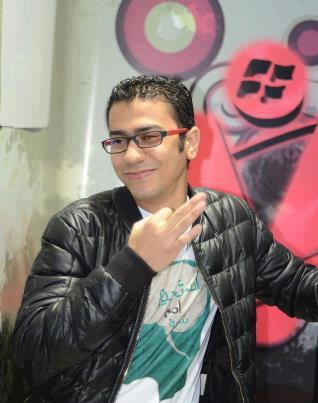Some call Bush a terrorist
CAIRO: The decision of an Iraqi court to uphold the death sentence given to former Iraqi president Saddam Hussein opened the door to many discussions about Iraq among Cairenes with many expressing concern for the deteriorating situation in the war-ravaged Arab country.
Opinions were framed around the dire situation in Iraq and the wider political climate in the region, and responses often included harsh words for US president George W. Bush and his decision to invade Iraq in March 2003.
The escalating sectarian violence in Iraq, in the minds of many in the Egyptian capital, has rendered Hussein’s fate irrelevant.
His term is up, said Hamdi abd Al Said, a taxi cab driver. But with all the people that have been killed, and everything that is happening in Iraq, it doesn t matter. It s finished.
Hussein was convicted of crimes against humanity earlier this year for the 1982 killing of 148 Shiites in Dujail, in southern Iraq. Earlier this week, a Baghdad appeals court upheld the decision that he should be hanged within 30 days.
Mohammed Hassan, a Khan al-Khalili storeowner who introduced himself as a Robert de Niro fan, disagreed with the execution:
“A prison sentence is better – for Bush. In prison he s going to suffer, so Bush will feel happy.
While admitting Hussein’s crimes, Hassan immediately wanted to shift the focus onto the violence in Iraq. “It is Iraqis fighting Iraqis now, not Saddam or the Americans, and Bush did that, he instigated that, Hassan said.
They knew everything that was going on. He and his father, before in Kuwait, had everything planned, concluding that the situation now is the product of American foreign policy plans.
Hassan said Bush was a terrorist and asked “what about what he has done?
But he maintained that he did not like Hussein.
Likewise, Wael Khalil, socialist activist and a member of the opposition group Kefaya, stressed that he doesn’t empathize with Hussein, but does not trust the verdict or the process.
“To put tyrants on trial is good, but it should be done by the public not by another tyrant. the occupation, Khalil told The Daily Star Egypt when the verdict was first handed in November.
He said he doubts if the Americans are deceiving any one with their achievements in Iraq.
“No one is seeing the rule of law being applied there. This also includes the unplanned results of the trial. “If [the Americans] are trying to rebuild [Hussein’s] image, they are doing a great job, he added.
For cab driver Al Said, Hussein’s execution figured into a wider view. “I work from 10 to 7 every night. I sleep through daytime. I don’t have time to keep up with current events, but I still sympathize with struggles in the Arab world, he said. “Egyptians have sympathy for everything.
Hussein was a prominent Arab leader for decades and his deposal from power and the subsequent violence in Iraq, according to many in Cairo, reflected the ongoing impact of foreign, particularly American, influence.
Dr Mark Sedgwick, an Associate Professor of History at the American University in Cairo, told The Daily Star Egypt that while Hussein was no longer very relevant, and that confirmation of his execution was “inevitable, he was not “totally sure that it was a good thing because, basically, that s the old story now. He did what he did and that era has finished.
Most of all, Sedgwick believed that Hussein’s trial might have been an opportunity to show some mercy in a situation where mercy is in short supply.
The view of Hussein as tied to American foreign policy was continually mentioned.
Saddam destroyed his country and his people, said a grocer downtown who asked that his name not be printed, but he was a tool of American foreign policy – [like] Kuwait in 1991.
Al-Said reiterated those sentiments: “It s American foreign policy – everything he did – Iran, Kuwait – they gave him permission to do. He is not any better than the people who came before him.
Mohammed Abdel Satar Ahmed, who has been driving a taxi for a year and a half since receiving a degree in engineering, revealed the dynamics of expressing political opinion in Egypt, saying first what he thought the government wants people to say, “I understand that the Iraqi court decided that Saddam would be executed by this date, but they won t do it. I like Hussein and want to see him live.
Then he demurred, saying the pressures on public speech from the government cuts off his and others opinions, that “they don’t let people think. Instead, he said, “Saddam has to die, for all the reasons that are there.
But we still wavered: “I m not the one who should say he should or should not die, because he is an Arab just like me.

